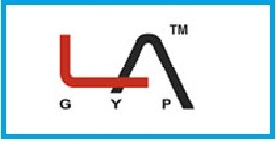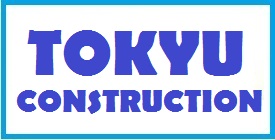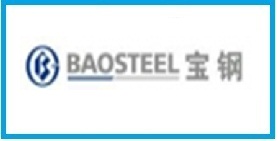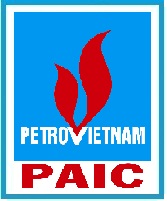 0936 1111 82
0936 1111 82Labor Code of Vietnam 2012 - Chapter V DIALOGUE AT THE WORKPLACE, COLLECTIVE NEGOTIATION, COLLECTIVE LABOUR AGREEMENT
Chapter V DIALOGUE AT THE WORKPLACE, COLLECTIVE NEGOTIATION, COLLECTIVE LABOUR AGREEMENT
|
|
VIET NAM LABOR CODE 2012(THE LABOR CODE OF VIETNAM)The Labor Code specifies the labor standards; the rights, obligations and responsibilities of the employees, the employers, the labor representative organizations, the employer representative organizations in the labor relation and other relations directly related to the labor relation, the State management of labor |
Chapter V
DIALOGUE AT THE WORKPLACE, COLLECTIVE NEGOTIATION, COLLECTIVE LABOUR AGREEMENT
Section 1. DIALOGUE AT THE WORKPLACE
Article 63. Purpose and form of dialogue at workplace
1. Dialogue at the workplace in order to share information and enhance the understanding between the employer and the employee to build the labor relations at the workplace.
2. Dialogue at work is done through the direct exchange between the employee and the employer or between the representatives of labor collective with the employer to ensure the implementation of democratic regulations at the grassroots level.
3. The employer and the employee are obliged to implement the democratic regulations at the grassroots level at workplace in accordance with the regulations of the Government.
Article 64. Content of dialogue at the workplace
1. The situation of production and business of the employer.
2. The implementation of labor contracts, collective labor agreements, internal rules, regulations and commitments and agreements at the workplace.
3. Working conditions
4. Requirements of the employee and the labor collective for the employer.
5. Requirements of the employer with the employee and the labor collective.
6. Other contents that both parties are concerned about
Article 65. Conducting dialogue at the workplace
1. Dialogue at the workplace is conducted once every 03 months periodically or at the request of one party.
2. The employer is obliged to arrange the venue and other material conditions to ensure the dialogue at the workplace.
Section 2. COLLECTIVE NEGOTIATION
Article 66. Purpose of the collective negotiation
The collective negotiation is that the labor collective makes discussion and negotiation with the employer for the following purposes:
1. Building harmonious, stable and progresive labor relations;
2. Establishing new working conditions as a basis for signing the collective labor agreements;
3. Settling the problems and difficulties in implementing the rights and obligations of each party in the labor relations.
Article 67. Principle of collective negotiation
1. Collective negotiation is conducted on the principles of goodwill, equality, cooperation, openness and transparency.
2. Collective negotiation is conducted periodically or irregularly.
3. Collective negotiation is done at the place agreed upon by both parties.
Article 68. Right to require the collective negotiation
1. Each party shall have the right to require the collective negotiation; the party receiving the requirement is not entitle to decline the negotiation. Within 07 working days after receiving the negotiation request, the parties shall agree upon the starting time of the negotiation meeting.
2. Where a party can not participate in the negotiation meeting at the starting time for negotiation as agreed, that party has the right to propose the postponement, but the starting time of negotiation shall not exceed 30 days after receiving the request for collective negotiation.
3. Where a party declines to negotiate or not conduct the negotiation within the time limit prescribed in this Article, the other party has the right to carry out the procedures for requesting the settlement of labor disputes in accordance with the law.
Article 69. Representative of collective negotiation
1. Representative of collective negotiation is defined as follows:
a) For the labor collective in collective negotiation, the scope of enterprise is the representative organization of the labor collective at the grassroots level; the collective negotiation of the scope of sector is the representative of the sector Executive Committee of theTrade union;
b) For the employer in the collective negotiation, the scope of enterprise is the employer or the representative of the employer; the collective negotiation in the scope of sector is the representative of the representative organization of the sector employer
2. The number of people attending the negotiation meeting of each party shally be agreed upon by both parties.
Article 70. Content of collective negotiation
1. Salary,bonus,allowance andpay rise
2. Working hour, rest time, overtime working, break between shift.
3. Job guarantee for the employee
4. Ensuring the labor safety, occupational health and complying with labor rule.
5. Other contents that both parties are concerned about.
Article 71. Process of collective negotiation
1. The process for preparation of the collective negotiation is regulated as follows:
a) Before the collective negotiation meeting at least 10 days, the employer must provide information on the situation of production and business upon the requirement from the labor collective except for business secrets and technology secrets of the employer.
b) Gathering opnions of thelabor collective
The negotiation representative of the labor collective party shall directly gather opinions of the labor collective or indirectly through the delegate conference of the employee concerning the requirements of the employee for the employer and the requirements of the employer with the labor collective;
c) Notification of the content of collective negotiation.
Within 05 working days before the start of the collective negotiation meeting, the party requiring the collective negotiation must notify in writing the other party of the estimated contents for the conduct of collective negotiation.
2. Procedures for the collective negotiation are regulated as follows:
a) Organizing the meeting of collective negotiation
The employer shall organize the meeting of collective negotiation with time and place agreed upon by both parties.
The collective negotiation must be recorded in writing, in which there must be the contents agreed upon by the two parties. The estimated time of for the signing of the agreed content; the contents with different opinions;
b) The minutes of the meeting of collective negotiation must have the signature of the representative of labor collective, of the employer and the person recording the minutes.
3. Within 15 days from the day of termination of the meeting of collective negotiation, the negotiation representatives of the labor collective party must diffuse widely and publicly the minutes of the meeting of collective negotiation to the labor collective and collect susggestion by voting from the labor collective on the contents agreed upon.
4. Where the negotiation fails either party may request to continue the negotiation or conduct the procedures for the settlement of the labor disputes in accordance with this Code.
Article 72. Responsibilities of the trade unions, representative organizations of the employers and the state management agencies on labor in collective negotiation.
1. Organizing the training of the collective negotiation skills for the persons participating in the collective negotiation.
2. Participating in the meeting of collective negotiation upon the request from either collective negotiation party.
3. Providing and exchanging information relating to the collective negotiation
Section 3. COLLECTIVE LABOR AGREEMENT
Article 73. Collective Labor Agreement
1. A collective labour agreement is a written agreement between a labour collective and the employer in respect of working conditions that both parties have agreed upon through collective negotiation.
A collective labour agreement includes the enterprise collective labour agreement, the sector collective labour agreement and other form of collective labour agreement as prescribed by the Government.
2. The contents of the collective labour agreement must not be inconsistent with the regulation of law and must be more favorable to the employee compared with the provisions of law.
Article 74. Signing of the collective labor agreement
1. The collective labor agreement is signed between the representative of the labor collective with the employer or the the employer’s representative.
2. The collective labor agreement is only signed when the parties have reached the agreement at the meeting of collective negotiation and:
a) There is over 50% of the labor collective to vote for the content of the collective negotiation agreed upon in case of signing the enterprise collective labor agreement;
b) There is over 50% of the Executive Committee ofthe Trade union at the grassroots level or the senior Trade union voting for the approval of the content of the collective negotiation agreed upon in case of signing the sector collective labor agreement;
c) For the other form of the collective labor agreement in accordance with the regulation of the Government.
3. When the collective labor agreement has been signed, the employer must announce it to his/her employee.
Article 75. Sending the collective labor agreement to the state management agency
Within a period of 10 days from the signing day, the employer or the employer’s representative must send a copy of the collective labor agreement to:
1. The provincial state management agency on labor for the enterprise collective labor agreement,
2. The Ministry of Labour, War Invalids and Social Affairs for the sector collective labor agreement and other collective labor agreement.
Article 76. Effective day of collective labor agreement
The effective day of collective labor agreement is specified in the agreement.
In case there is no effective day in the collective labor agreement, the agreement then takes effect from the signing day
Article 77. Amendment and supplementation of the collective labor agreement
1. The parties are entitled to require the amendment and supplementation of the collective labor agreement in the following time limit
a) After 03 months of implementation for the collective labor agreement with the time limit of less than 01 year;
b) After 06 months of implementation for the collective labor agreement with the time limit from 01-03 years
2. In cases the provisions of law change that makes the collective labor agreements no longer consistent with the provisions of law, the two parties have to amend and supplement the collective labor agreement within 15 days from the day the provisions of law take effect.
During the time of amendment and supplementation of the collective labor agreement, the employee’s interests shall comply with the provisions of law.
3. The amendment and supplementation of the collective labor agreementshall be conducted as the signing of the collective labor agreements.
Article 78. Invalid collective labor agreements
1. The collective labor agreements shall be partially invalid when one or several contents in the agreement become illegal.
2. The collective labor agreements shall be entirely invalid in one of the following cases:
a) Having the entire illegal content
b) The signers are beyond their competence;
c) The signing is not in conformity with the process of collective negotiation
Article 79. The competence to declare the collective labor agreement invalid
The People’s Court is entitled to declare the collective labor agreement invalid.
Article 80. Handling of the invalid collective labor agreement
When the collective labor agreement is declared invalid, the rights, obligations and interests of the parties specified in the agreement corresponding to the entire or the part declared invalid shall be settled as prescribed by law and the legal agreements in the labor contract,
Article 81. Expired collective labor agreement
Within 03 months prior to the expiration of collective labor agreement, the two parties may negotiate to extend the term of the collective labor agreements or sign a new collective labor agreements.
Upon the expiration of collective labor agreement, but both parties still keep on negotiation, then the old collective labor agreement remains in use within a period not exceeding 60 days.
Article 82. Cost of collective negotiation and signing of collective labor agreement
All costs for the negotiation and signing, amendment, supplementation, sending and publication of the collective labor agreement shall be paid by the employer.
SECTION 4. ENTERPRISE COLLECTIVE LABOR AGREEMENT
Article 83. Signing of the enterprise collective labor agreement
1. The person signing the enterprise collective labor agreement is regulated as follows:
a) The labor collective party is the representative of labor collective at the grassroots level;
b) The employer party is the employer or the employer’s representative.
2. The enterprise shall make the collective labor agreement into 05 copies, in which:
a) Each signing party keeps 01 copy;
b) 01 copy is sent to the state agency as prescribed in Article 75 of this Code;
c) 01 copy is sent to the direct superior trade union at the grassroots level and 01 copy sent to the employer’s representative organization in which the employer is a member.
Article 84. Performance of the enterprise collective labor agreement.
1. The employer, the employee including the employee entering the enterprise to work after the effective day of the collective labor agreement are responsible for fully performing the collective labor agreement.
2. In case the rights, obligations and interests of the parties in labor contracts concluded before the effective day of the collective labor agreement lower than the corresponding provisions of the collective labor agreement, the corresponding provisions of the collective labor agreement must be performed. If the employer’s provisions on the labor are incompatible with the collective labor agreement, they must be amended to suit the collective labor agreement within 15 days from the effective day of collective labor agreement.
3. When a party thinks that the other party incompletely performs or breaches the collective labor agreement, it is entitled to request the proper performance of the agreement and both parties must jointly consider and settle the problems, if failed, each party has the right to request the settlement of the collective labor disputes in accordance with the law.
Article 85. Time limit of the enterprise collective labor agreement
The enterprise collective labor agreement has a time limit from 01-03 years. For the enterprise that signs the collective labor agreement for the first time, the time limit may be less than 01 year.
Article 86. Performing the collective labor agreement in case of transfer of the ownership, the right of management, right of enterprise utilization, merger, consolidation, division, separation of enterprises
1. In case of transfer of the ownership, the right of management, right of enterprise utilization, merger, consolidation, division, separation of enterprises, the succeeding employer and representative of the labor collective shall rely on the plan for labor utilization in order to consider and choose to keep on performing, amending, supplementing the old collective labor agreement or negotiate to sign a new collective labor agreement.
2. In case the collective labor agreement is expired due to the employer’s termination of its effect, the employee’s interests shall be settled in accordance with the law on labor.
Section 5. SECTOR COLLECTIVE LABOR AGREEMENT
Article 87
1. The representative for the signing of the sector collective labor is regulated as follows:
a) The labor collective party is the sector Trade union President;
b) The employer party is the representative of the representative organization in which the employer has participated in the sector collective negotiation.
2. The sector collective labor agreement must be made into 04 copies, in which:
a) Each signing party keeps 01 copy;
b) 01 copy is sent to the state agency as prescribed in Article 75 of this Code;
c) 01 copy is sent to the direct superior trade union at the grassroots level
Article 88. Relationship between the enterprise collective labor agreement with the sector collective labor agreement
1. If the contents of the enterprise collective labor agreement or the employer’s regulations on the rights, obligations and legal interests of the employee in the enterprise are lower than the contents of the corresponding provisions of the sector collective labor agreement, the enterprise collective labor agreement must be ameded and supplemented within a period of 03 months from the day the sector collective laboragreement takes effect.
2. The enterprise subject to the application of the sector collective laboragreement but having not built the enterprise collective laboragreement can build additional enterprise collective labor agreements with the provisions more favorable to the employee compared with the provisions of the sector collective labor agreement
3. Encouraging the enterprise in the sector having not participated in the sector collective labor agreement to perform it.
Article 89. Time limit of the sector collective labor agreement
The sector collective labor agreement has a time limit from 01-03 years
Related News
- Labor Code of Vietnam 2012 - Chapter I GENERAL PROVISIONS
- Labor Code of Vietnam 2012 - Chapter II EMPLOYMENTS
- Labor Code of Vietnam 2012 - Chapter III LABOR CONTRACT
- Labor Code of Vietnam 2012 - Chapter IV VOCATIONAL LEARNING AND TRAINING, VOCATIONAL SKILL AND GRADE IMPROVEMENT
- Labor Code of Vietnam 2012 - Chapter VI SALARY
- Labor Code of Vietnam 2012 - Chapter VII WORKING HOURS AND BREAK HOURS
- Labor Code of Vietnam 2012 - Chapter VIII LABOR DISCIPLINE AND MATERIAL RESPONSIBLITY
- Labor Code Vietnam 2012 - Chapter IX LABOR SAFETY AND HYGIENE
- Labor code Vietnam 2012 - Chapter X PRIVATE REGULATIONS FOR FEMALE EMPLOYEE
- Labor code Vietnam 2012 - Chapter XI EXCLUSIVE PROVISIONS FOR UNDER AGE EMPLOYEE AND A NUMBER OF TYPES OF EMPLOYEE





















